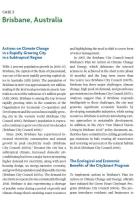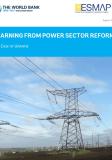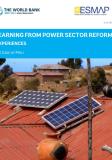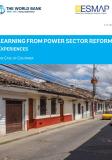Publications

With 2 percent population growth in 2006–07, Brisbane, the capital of the State of Queensland, was one of the most rapidly growing capital cities in Australia. Brisbane's population in 2007 was approximately 1.01 million, making it the first local government area in Australia to exceed 1 million people. Brisbane is among the top 10 most rapidly growing cities in the countries of the Organisation for Economic Co-operation and Development and the second most rapidly growing city in the western world. Brisbane’s population is expected to continue to grow over the next two decades.
In 2007, the Brisbane City Council issued Brisbane’s Plan for Action on Climate Change and Energy, which delineates the selected actions to be achieved in the short term (about 18 months) and the long term (more than five years). Brisbane has three major challenges: climate change, high peak oil demand, and greenhouse gas emissions.
Analyses suggest that, if Brisbane responds intelligently to these challenges, the city may generate significant economic benefits by developing sustainable industries, while saving resources. Brisbane is actively introducing various approaches to sustainable development. In addition, in the city’s “Our Shared Vision: Living in Brisbane 2026” policy document, authorities have committed to cutting greenhouse gas emissions in half, reusing all wastewater, and restoring 40 percent of the natural habitat by 2026.
Eco2 Cities: Ecological Cities as Economic Cities
RELATED:
Part three consists of the Field Reference Guide. The guide contains background literature designed to support cities in developing more in-depth insight and fluency with the issues at two levels. It provides a city-by-city and sector-by-sector lens on urban infrastructure. The next section comprises a series of sector notes, each of which explores sector-specific issues in urban development.
Suzuki, Hiroaki; Dastur, Arish; Moffatt, Sebastian; Yabuki, Nanae; Maruyama, Hinako. 2010. "The Field Reference Guide, Case 5: Brisbane, Australia." In Eco2 Cities: Ecological Cities as Economic Cities. World Bank. © World Bank. https://openknowledge.worldbank.org/handle/10986/2453


